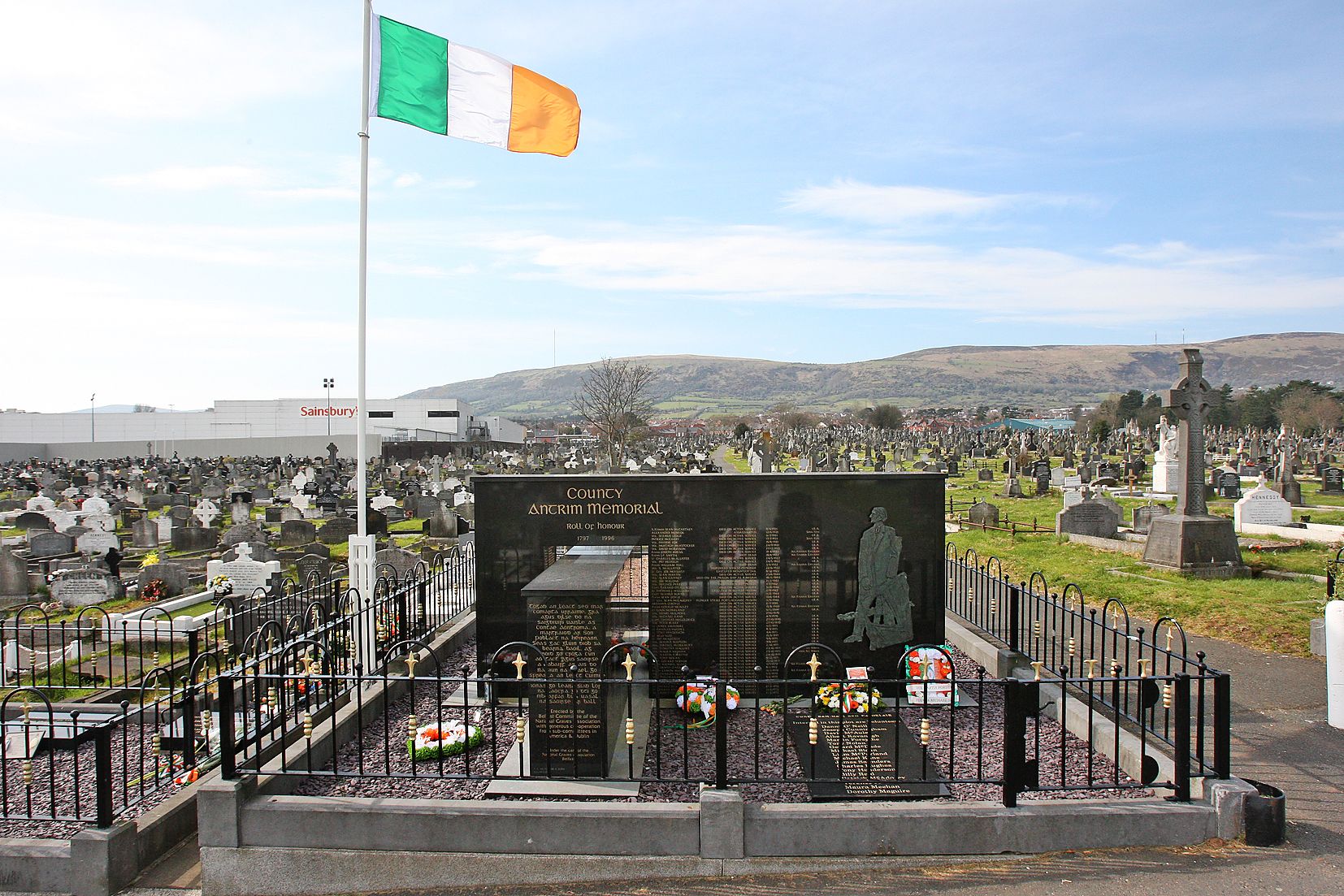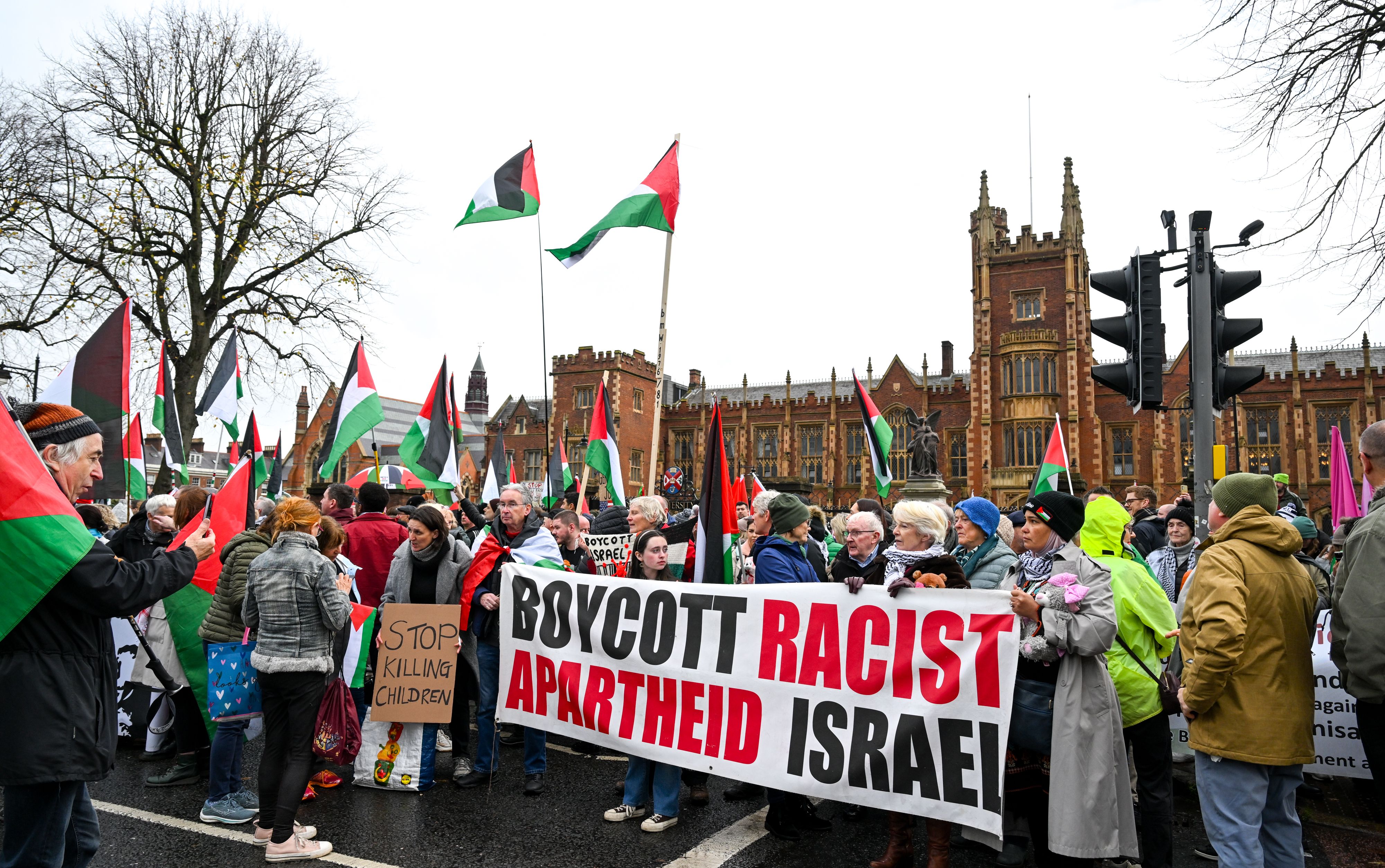IN 2014 Sinn Féin brought forward a Dáil motion calling on the government to “officially recognise the State of Palestine, on the basis of the 1967 borders, with East Jerusalem as the capital".
I was part of this initiative. It got support from other TDs, from other parties and none. It was not opposed by the government at that time. Following a two-day debate the motion was passed. This meant that ten years ago both Houses of the Oireachtas supported the right of the Palestinian people to self-determination – to a Palestinian state. This was a positive development. The government should have acted on this imperative. It refused to do so. I raised this refusal regularly with successive Taoisigh.
Every Taoiseach since then refused to deliver on the will and direction of the Oireachtas. They would not act on this imperative. Instead, they argued that recognition of a Palestinian state remained contingent on a deal with Israel to a two-state solution. In reality, Enda Kenny, Micheál Martin and Leo Varadkar gave the state of Israel a veto over the right of the Palestinian people to a Palestinian state.
Today, according to Simon Harris and Micheál Martin, formal diplomatic recognition of Palestinian statehood is now dependent on the completion of international discussions involving the Irish government. Is this a real commitment to recognition in the short term? Or is the Irish government’s recognition of the state of Palestine now conditional on the outcome of international discussions about which few details have been given?
The motion passed by by the Dáil ten years ago was detailed and definitive. It followed an initiative by over 900 prominent Israeli citizens, including Nobel laureates, writers, academics, business people, and broadcasters. They wrote to Parliamentarians across Europe, including the Dáil, seeking support for a Palestinian state. The letter was evidence of a deep desire and hope by some Israelis to adopt an approach which they believe is in the interests of Palestinians but, crucially, is also in the interests of Israel.
Days earlier I had been in Palestine and Israel where among those I spoke to was Yehuda Shaul, a former Sergeant and Commander in the Israeli Army. He is a founder and co-director of ‘Breaking the Silence’, an organisation made up of former Israeli soldiers who speak out against the actions of the IDF. A role he continues with today. In 2014, in words prescient of the current genocide and of the approach of the international community, Shaul told me: “The International community is failing Israelis and Palestinians. There is a lot of talk but no action. Nowhere in history did people wake up one morning and give up their privileges... the international community has to raise the price for Israel of the current status quo... No one will live in dignity or freedom here. Neither the Palestinians or Israelis, until there is a sovereign Palestinian state. This is the right patriotic position.”
The formal diplomatic recognition of the Palestinian State cannot forever be conditional on what others may or may not do. Either the people of Palestine have national democratic rights or they don’t. If they have the right to self-determination – and I believe they do and, more importantly, the Dáil has decided this – then there should be no more delays. Ten years is too long.
Tánaiste Micheál Martin several weeks ago acknowledged that many in the international community now accept that recognition of a Palestinian state cannot be contingent on a two-state peace deal. He and An Taoiseach now need to act on the logic of that position. The Irish government should formally recognise Palestine as the rightful state of the Palestinian people. Perhaps if this had happened as it should have ten years ago the people of the Middle East might have been spared the awfulness of what has occurred since then.
Productive & substantive meeting w/ Egyptian FM Sameh Shoukry ahead of my visit to the Rafah Crossing
— Micheál Martin (@MichealMartinTD) April 23, 2024
Discussion on the dire situation in Gaza, the Arab peace plan & recognition of a Palestinian state
I thanked him for 🇪🇬’s help in the exit of over 90 🇮🇪 citizens from Gaza https://t.co/tYnDuybRC6
Perhaps if they act now the prospect of wider conflict in the Middle East might be avoided. Or at least, an alternative leading to a meaningful peace process can be started.
Seán Mackel and the County Antrim Memorial
FOLLOWING my tribute last week to Seán Mackel, Dr Tom Hartley has written to me about Seán’s role in designing the County Antrim Memorial in Milltown Cemetery. This memorial is under the care of the National Graves Association, Belfast. There are 34 IRA Volunteers buried in this plot. It was originally called the Tom Williams plot, because money raised by the Tom Williams Gaelic Athletic and Camogie club bought the plot. The club was founded by republican prisoners in A Wing, Crumlin Road Jail, who wanted to reserve a grave in this plot for the remains of Tom Williams, a young republican hanged in Crumlin Road Jail in 1942.
The plot has two distinct sections. The main section has a cruciform monument. The smaller section to the immediate left of the main section contains four graves with a grey stone slab on each grave. The original monument in the main section was designed by Seán and made from Irish limestone. The bronze figures on the monument were by the Dublin sculptor Richard King. On the reverse of the monument is a representation of Róisín Dubh calling on the republicans of Antrim to strike for their freedom.
The front of the stone carries a male figure symbolising breaking the bars of imprisonment and rising to freedom. One face of the stone carries the names of Antrim’s patriot dead in the years 1798 to 1803. Another face has names from 1867 to 1953. The front faces of the stone carry names beginning in 1922 continuing through to 1971. The list on other faces carries through to 1990.
MONUMENT: The late architect Seán Mackel was instrumental in the design of the Milltown County Antrim Memorial
For many years a small stone on the right of the monument carried an inscription in memory of those Irish republicans who fought against fascism during the Spanish Civil War. A black polished marble slab in front of the monument has eighteen names of republican volunteers buried in this plot. The original monument was unveiled on Sunday, September 11, 1966. A new stone was dedicated on Easter Sunday, 2012. The plot is contained within a grey stone surround with railings.
Thank you, Tom. Another slice of our history and a further insight into Seán Mackel’s role. Many thanks also to Belfast National Graves for their outstanding work. They and others throughout Ireland and the world take care of the graves of our patriot dead. Míle buiochas daoibhse go leir.
Rights in a New Ireland
THE issue of rights is at the heart of the conversation on a new Ireland. Sinn Féin’s Commission on the Future of Ireland, which has been holding successful People's Assemblies across the island over the last 18 months, will host ‘Rights in a New Ireland’ on Friday, May 3, in St Comgall’s/Ionad Eileen Howell, Divis Street, between 11am and 1pm
If you are interested in human rights and want to have your say on the future shape of a new Ireland, come along and join us.








